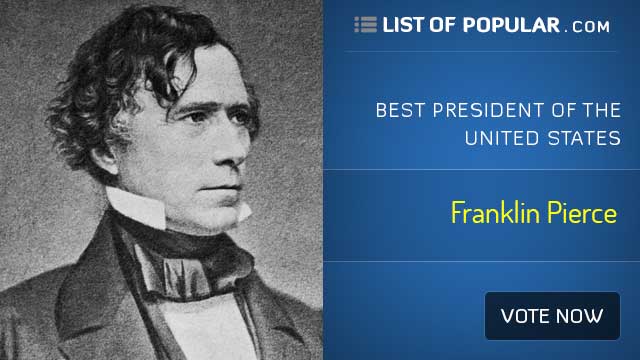The Best US President - Franklin Pierce
The Early Years
Franklin Pierce, born on November 23, 1804, in Hillsborough, New Hampshire, emerged as the 14th President of the United States. His early years were marked by tragedy and hardship. The death of his father when Pierce was just 8 years old cast a shadow over his formative years, shaping the resilience that would characterize his later political career.
Education and Military Service
Pierce's pursuit of education took him to Bowdoin College, where he developed a keen interest in law. After completing his studies, he embarked on a military career, serving in the Mexican-American War. His time in the military not only honed his leadership skills but also earned him the rank of brigadier general. These experiences would later play a crucial role in shaping his political perspective.
Political Ascent
Pierce's political journey gained momentum with his election to the New Hampshire legislature. Subsequently, he served in the U.S. House of Representatives and the Senate. His alignment with the Democratic Party and strong advocacy for states' rights endeared him to many, propelling him to national prominence.
The Compromise of 1850 and the Fugitive Slave Act
As sectional tensions escalated in the lead-up to the Civil War, Pierce faced the daunting task of navigating the divisive issue of slavery. The Compromise of 1850, a package of legislative measures, aimed at maintaining a delicate balance between slave and free states. Pierce, though a Northerner, supported the compromise, including the controversial Fugitive Slave Act, a decision that would later haunt his legacy.
The Kansas-Nebraska Act and Bleeding Kansas
Pierce's presidency witnessed the passage of the Kansas-Nebraska Act in 1854, a move that further fueled tensions over the spread of slavery into new territories. The Act's provision for popular sovereignty in determining the slave or free status of these territories led to violent clashes in Kansas, earning it the infamous moniker "Bleeding Kansas." Pierce's perceived pro-southern stance during this period drew criticism from anti-slavery advocates and contributed to his declining popularity.
Foreign Policy Challenges
Internationally, Pierce faced challenges, particularly in relations with Mexico and Britain. The controversial Ostend Manifesto, a diplomatic initiative aimed at acquiring Cuba from Spain, raised eyebrows and intensified sectional tensions. Additionally, the Gadsden Purchase, intended to facilitate a southern transcontinental railroad route, added fuel to the fire of the slavery debate.
The Legacy of an Unpopular Presidency
Pierce's presidency came to an end in 1857, and he retired from public life. Despite his earlier successes, his support for divisive policies and his perceived alignment with pro-slavery interests had taken a toll on his popularity. The nation was on the brink of civil war, and Pierce's presidency is often remembered as one that failed to avert the impending crisis.
Post-Presidential Years and Death
Following his presidency, Franklin Pierce returned to New Hampshire and largely withdrew from public affairs. He witnessed the outbreak of the Civil War but did not live to see its conclusion. He passed away on October 8, 1869, leaving behind a legacy marked by both accomplishments and controversies.
In retrospect, Franklin Pierce's presidency remains a complex chapter in American history. While he demonstrated leadership in various capacities, his handling of the slavery issue and the ensuing unrest during his tenure shaped a presidency marred by controversy and unpopularity.

